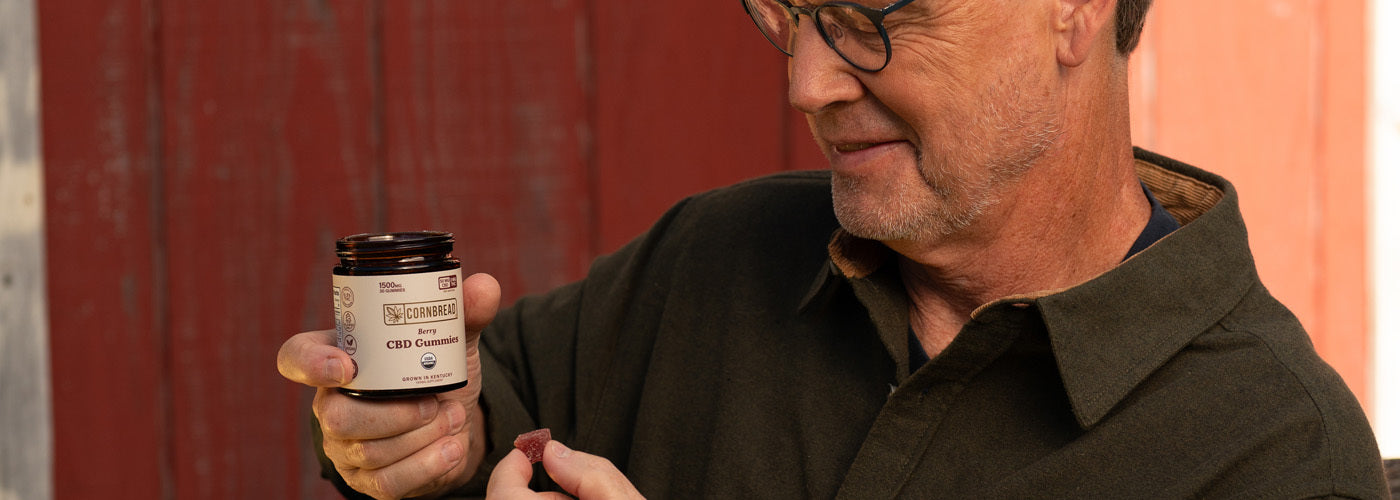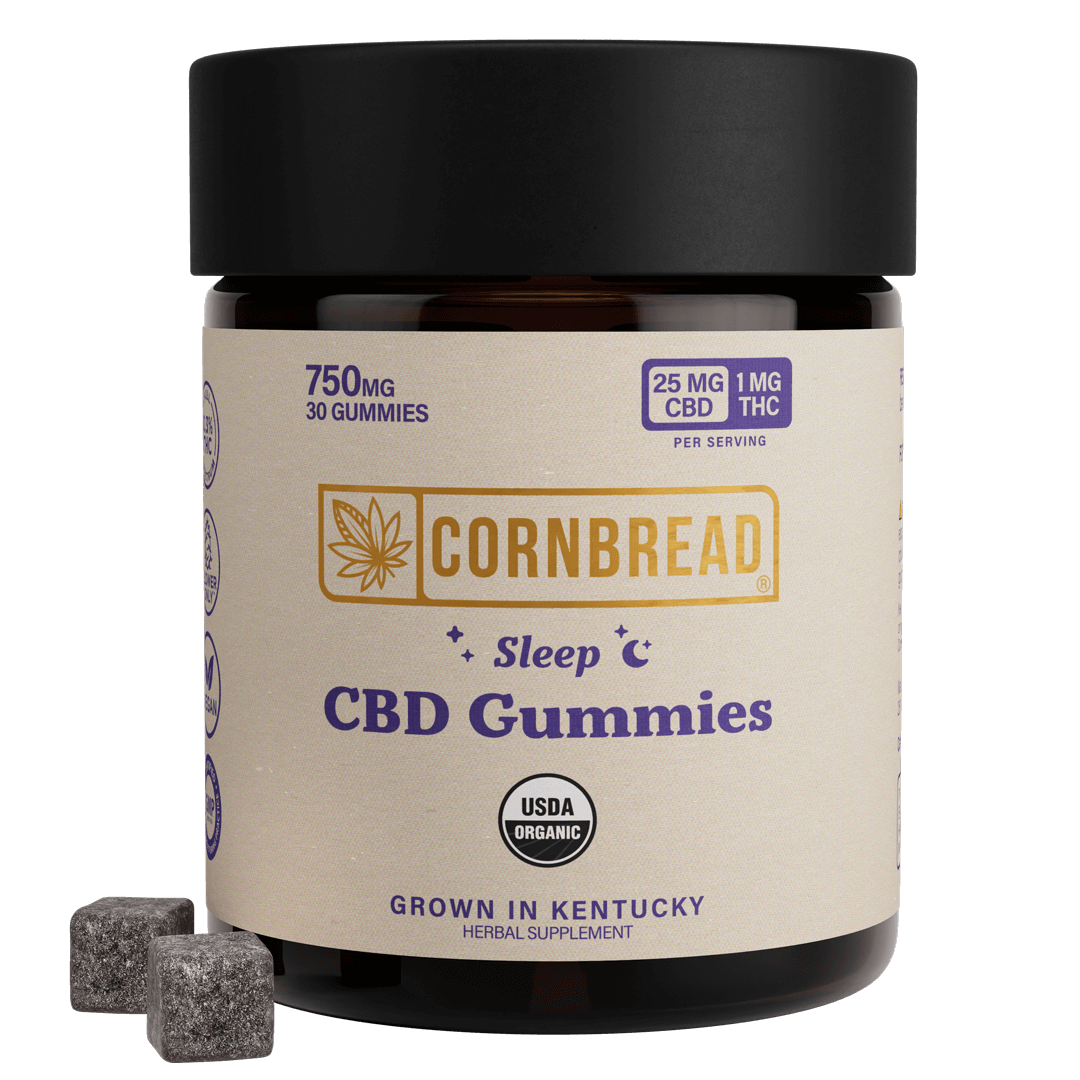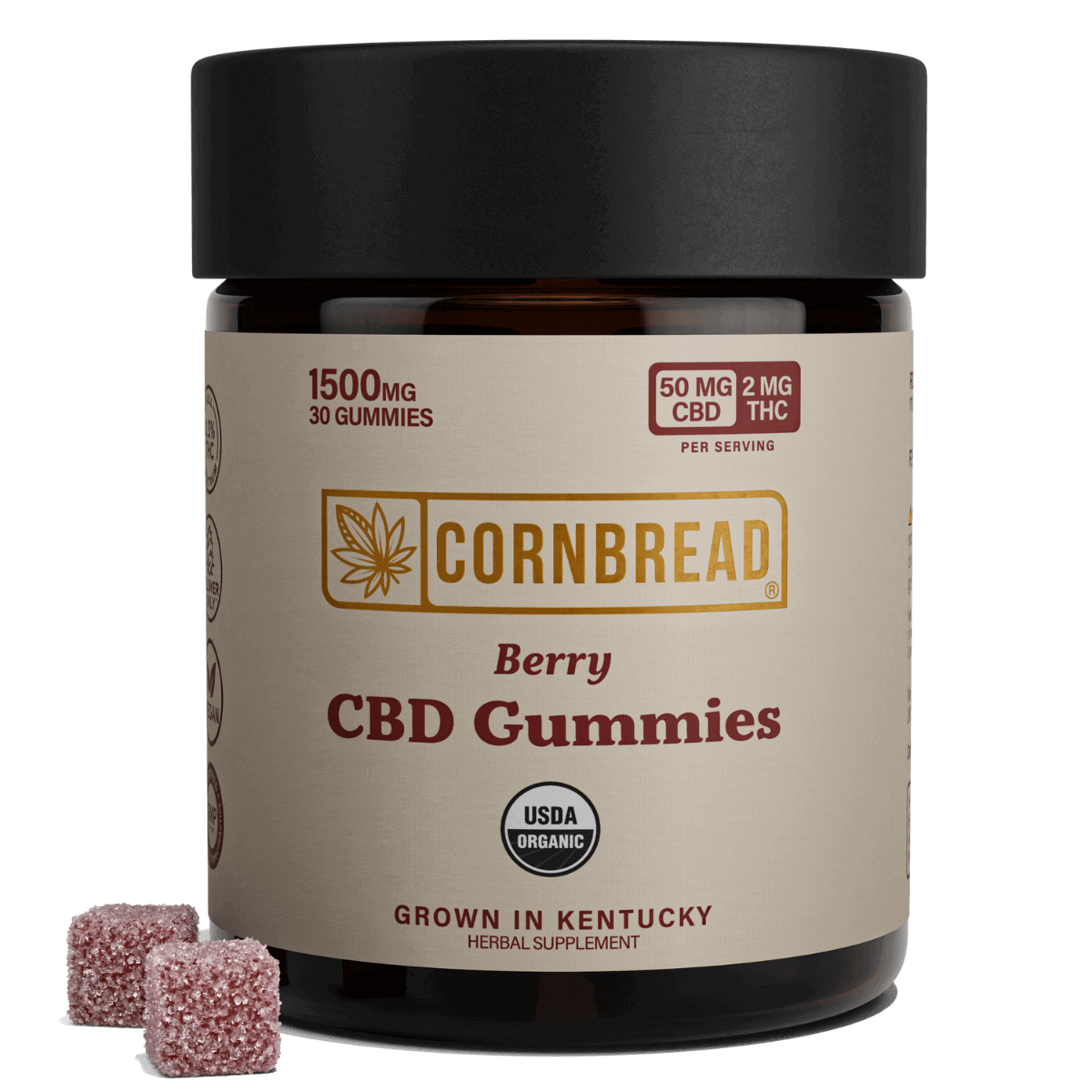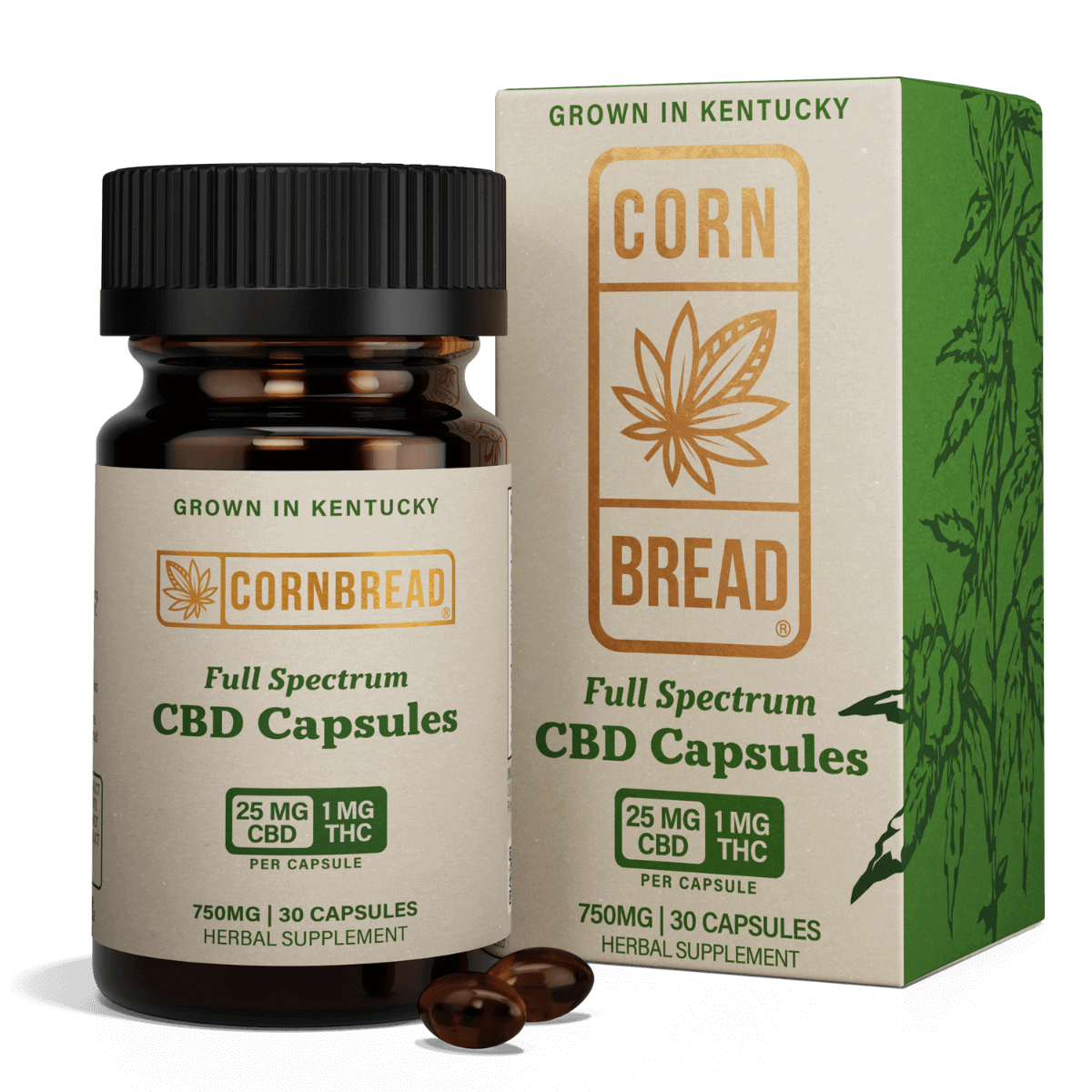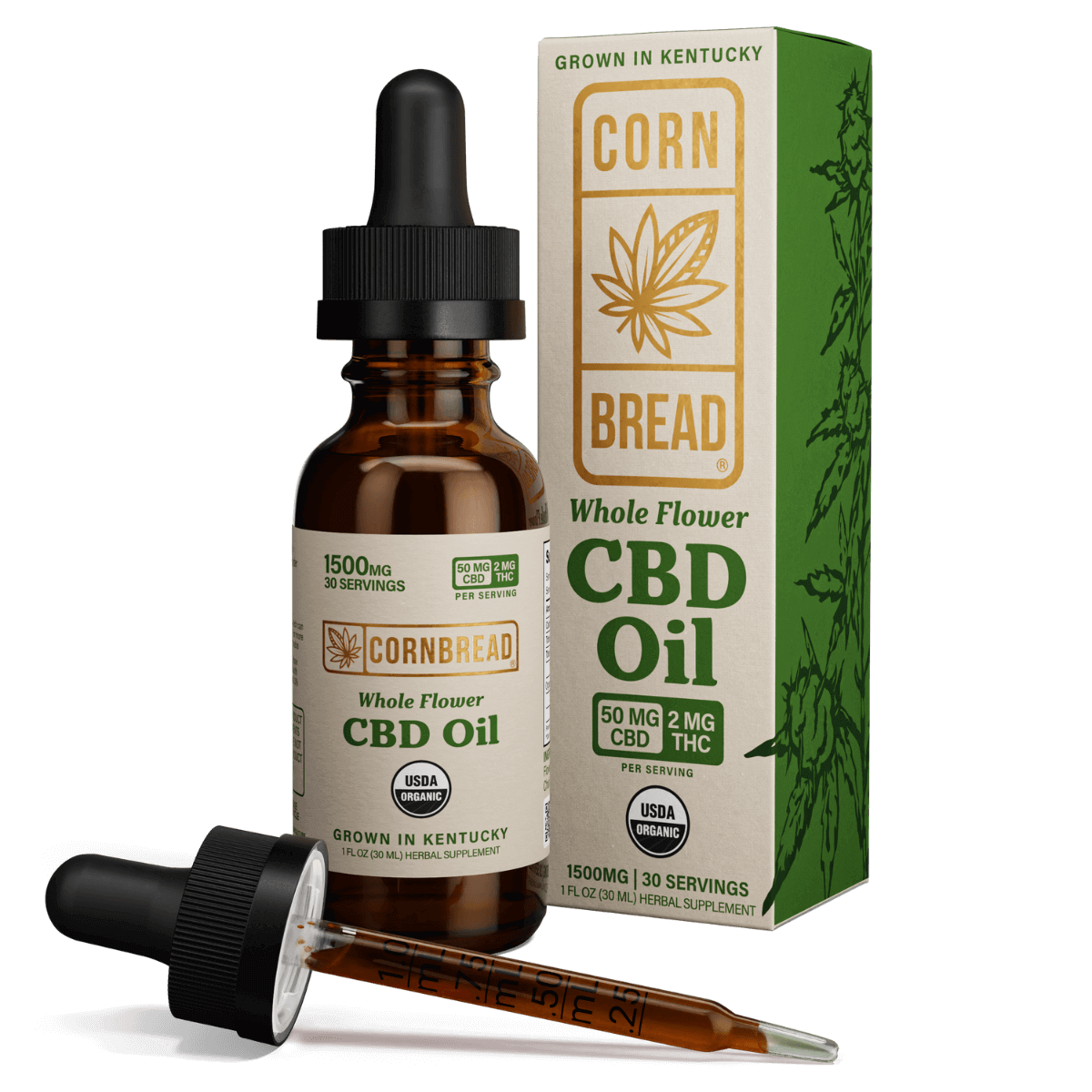Table of Contents
As CBD oil has become steadily more popular in wellness circles, its potential to improve sleep quality has garnered significant attention. However, before jumping aboard the CBD sleep train, there are important questions to consider: How does CBD affect sleep, and does it lead to tiredness during the day?
Good sleep quality is vital to overall health, but many Americans suffer from irregular sleep patterns and difficulty falling (or staying) asleep. In this article, we'll examine how CBD works, how it performs as a natural sleep aid, and how it impacts both nighttime sleep and daytime alertness.
CBD & The Importance of Sleep
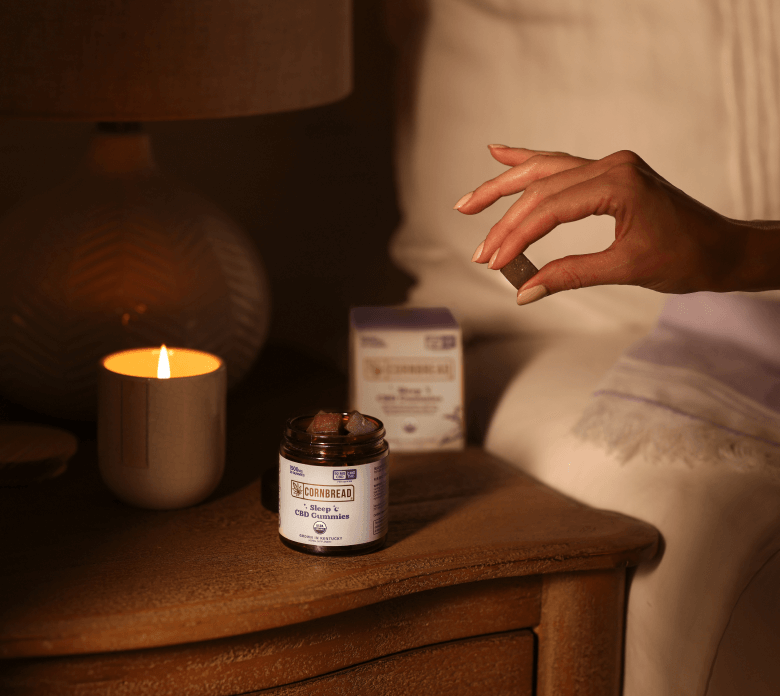
Sleep is an absolute necessity of life. You might be able to survive with poor quality sleep for years (or even decades), but your overall health will undoubtedly suffer.
Sleeping a minimum of seven hours per night is essential for optimal health, according to the National Library of Medicine.1 This is because sleep isn’t just a chance to rest your eyes. It's when your body repairs muscles, processes and stores memories, and bolsters the immune system. This nightly practice is vital for maintaining your overall health and preparing your mind and body for the challenges of tomorrow.
Unfortunately, achieving those vital z's is a difficult task for many. As a matter of fact, nearly 35% of Americans often fail to reach that coveted seven-hour sleep goal.2 Not to mention, not getting enough sleep is associated with many serious conditions, such as heart disease, type 2 diabetes, depression, and obesity, according to the Centers for Disease Control and Prevention.3
CBD vs. Conventional Sleep Aids
18% of adults in the U.S. took medications to help them fall or stay asleep, the National Center for Health Statistics (NCHS) reports.4 That's nearly one in five! Given the various side effects associated with these medications (and the fact that many can lead to dependency), more and more people are looking for safer alternatives, and that's where CBD comes into play.5
CBD (short for cannabidiol) is already well known for its many potential health benefits. In addition to relieving occasional aches and pains, improving mood, and reducing day-to-day stress, CBD can help support a healthy sleep cycle without the unwanted side effects of conventional sleep medications.
But what is CBD and how does it work? If you take CBD for something other than sleep, will it still make you tired? Let's take a look.
What Is CBD?
Cannabidiol (aka CBD) is a special compound — or cannabinoid — found in cannabis. There are over 100 different cannabinoids found naturally in both the hemp and marijuana varieties of cannabis. CBD and THC (tetrahydrocannabinol) are considered "major" cannabinoids because they're present in higher concentrations than all the other "minor" cannabinoids.
CBD is incorporated into various wellness products, from tinctures and oils to topical creams and edible gummies. Most of the CBD you see on shelves is extracted from hemp and not marijuana. This is because non-intoxicating hemp is specially grown to contain much higher levels of CBD and much lower levels of THC (the cannabinoid that makes you feel high).
Is CBD Legal?
Now, let's talk legality. Thanks to the 2018 Farm Bill, hemp and hemp-derived CBD containing no more than 0.3% THC are federally legal in the USA.6 With this legislation, growers began cultivating cannabis with high levels of CBD and low levels of THC (aka hemp). The result? A wide variety of CBD wellness supplements and products have entered the market — from sports creams and sublingual oils to Sleep CBD Gummies and Pet CBD treats.
Keep in mind that while hemp-derived CBD is federally legal, laws may vary from state to state. It's always a good idea to check your local laws first, especially when purchasing CBD products online.
How CBD Works
How does CBD work to support healthy sleep? It interacts with a very specific system in our bodies — the endocannabinoid system (ECS for short). The ECS is a complex network of receptors, enzymes, and endocannabinoids (from “endo-” meaning "within").
The ECS plays an important role in various biological processes, including those responsible for digestion, temperature regulation, immune response, and — you guessed it — sleep and relaxation.7
A Look Inside the Endocannabinoid System:
-
The cannabinoid receptors of the ECS are located throughout the body — in the brain, gut, organs, and other tissues.
-
Cannabinoid-like molecules called endocannabinoids, which are created within the body, bind with ECS receptors to trigger specific reactions (e.g., reduce temperature, speed up metabolism, etc.).
-
Once an endocannabinoid has performed its duty, enzymes break it down, and the cycle begins again.
Why CBD Is So Special
Endocannabinoids and phytocannabinoids (cannabinoids from plants, such as CBD) are so similar in form that they can both interact with the ECS. This is why cannabis has been found to create such substantial effects compared to other plants (like broccoli).
But while most cannabinoids (like THC) bind directly with ECS receptors, CBD behaves in a more nuanced manner — preventing enzymes from breaking down other cannabinoids and endocannabinoids, which allows them to produce greater effects on the body.
This extended interaction between the cannabinoids and the receptors may enhance the ECS's ability to maintain homeostasis (overall balance), positively affecting everything from mood regulation to sleep cycles.
It's no wonder CBD is one of the most sought-after cannabinoids, offering a calm balance without the psychoactive effects associated with THC.
So, Can CBD Make You Tired?
Unlike conventional sleep aids, CBD isn't a sedative that makes you fall asleep. CBD's role in sleep is more about creating a calm and relaxed state in the body, setting the stage for some deep and restful sleep.8 For many, this sense of relaxation alone can be conducive to falling asleep (particularly for those who experience occasional sleeplessness due to stress or an overactive mind).
It's important to note that CBD isn’t one-size-fits-all. The effects of CBD can vary from person to person. Some might find that it noticeably improves their sleep pattern, while others might not be able to tell a difference. This variability can be due to several factors, like individual body chemistry, CBD dosage, and the type of CBD taken (more on this later).
Will CBD Make Me Tired During the Day?
Given that CBD oils and CBD gummies are widely used to help improve sleep, does this mean you have to worry about daytime sleepiness?
Unlike other supplements used to support sleep, CBD doesn't typically cause daytime sleepiness. CBD supports relaxation and its soothing effect (particularly at higher doses) can help bring about a calm feeling — without making you drowsy.
As great as CBD is, it isn't some kind of magic potion. If it isn't improving your sleep like you'd hoped, or if it's making you sleepy during the day, you should consider what other factors may be at play. For example:
-
You've experienced occasional sleeplessness. You begin to take CBD, which brings about a calm, relaxed feeling, and now you're finally able to fall asleep more easily. At first, you may feel tired during the day while catching up on your lost rest. This daytime tiredness is likely due to your dire need for sleep rather than the CBD.
-
You've been drinking lots of energy drinks and coffees to stay awake during the day. As a result, you've been having trouble falling asleep at night, so you start taking CBD sleep gummies. The gummies may help you relax, but you might still have trouble falling asleep if the caffeine in your system continues to act as a stimulant.
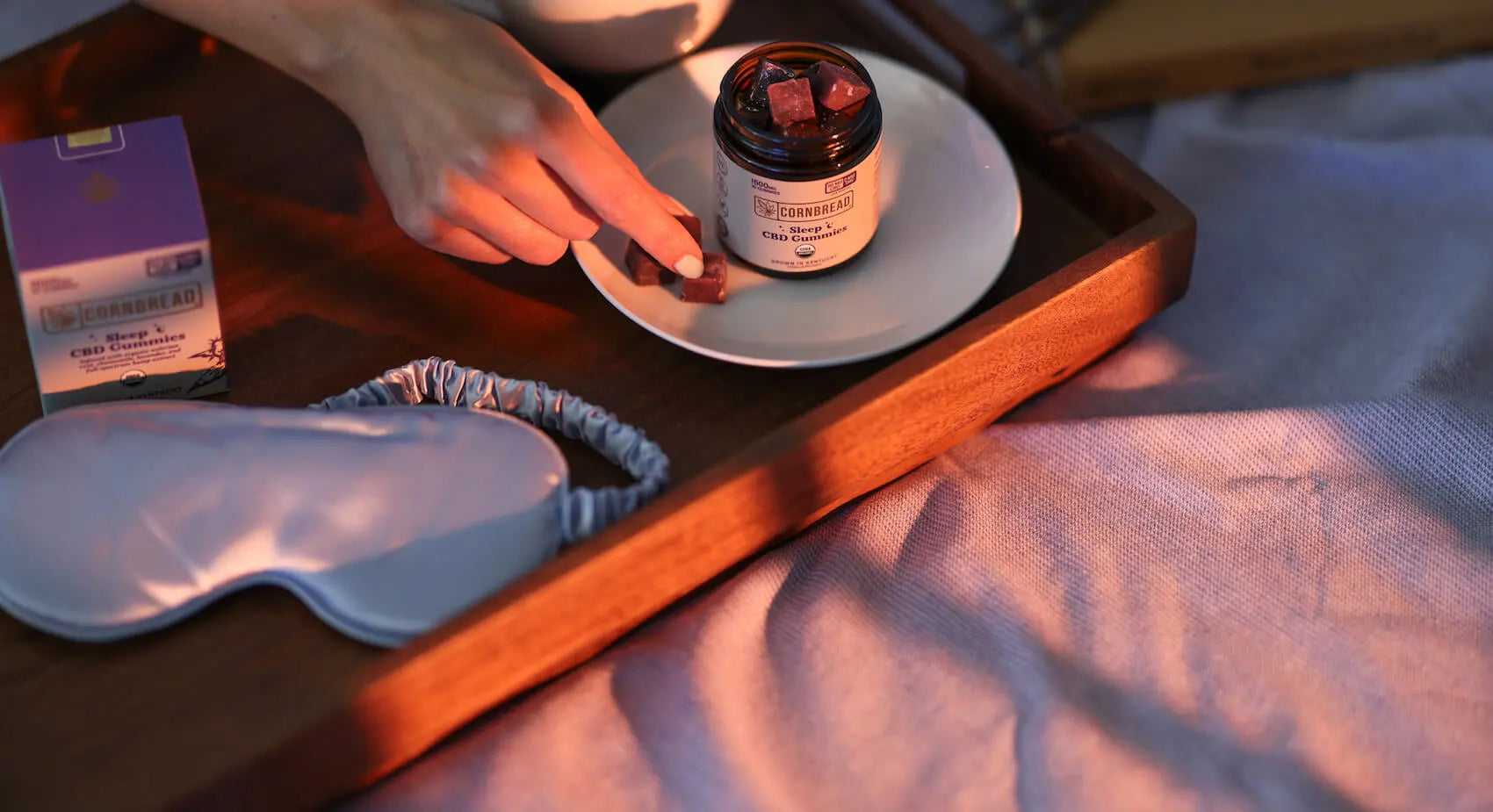
So, while CBD oil might help set the stage for a good night's sleep, it's not a guaranteed sleep-maker. Its role is more about promoting overall relaxation and balance, which can, in turn, support better sleep.
If you're worried that CBD will make you sleepy during the day, simply wait to take your dose until the evening. As with any new-to-you supplement, it's best to start with a lower dose to see how your body responds, and be sure to consult with a healthcare professional if you have any concerns.
Finding the Best Sleep Quality CBD Oil

It's important to recognize that the quality and type of CBD oil have a lot to do with how effective it is. You should brush up on the three main types of CBD before making your selection.
1. Full Spectrum CBD
Full spectrum CBD contains a variety of cannabinoids, as well as terpenes and flavonoids (which are responsible for the plant's color, taste, and aroma). Full spectrum CBD contains THC, but no more than 0.3%. That's not enough to get you high, but it is enough to work in conjunction with the rest of the cannabinoids to bring about maximum benefits. This phenomenon is called the "entourage effect," and it's why full spectrum CBD oil is considered the most effective CBD product available on the market.
2. Broad Spectrum CBD
Broad Spectrum CBD includes most of the cannabinoids, terpenes, and flavonoids found in hemp, but the THC is removed (or reduced to undetectable levels). This type of CBD is preferred by those who are avoiding all THC, even the very low amounts present in full spectrum products.
3. CBD Isolate
CBD Isolate is just like it sounds — isolated CBD, free of all other hemp compounds and cannabinoids. It contains 0% THC (and 0% anything but CBD). While it doesn't offer the entourage effect, CBD isolate is a good choice for those seeking only the benefits of CBD. Keep in mind that CBD appears to produce the greatest benefits when combined with other cannabinoids.
There are a few other things to look for when selecting a high-quality CBD oil.
-
Organic Hemp:
Hemp is a bio-accumulator, meaning the plant absorbs soil contaminants quicker than it can expel them. In fact, hemp is sometimes used to do just that — decontaminate soil. While this is great for the dirt, you don't want to consume any CBD that comes from a contaminated hemp plant. CBD derived from non-organic hemp could contain toxins, pesticides, heavy metals, and other contaminants.
This is why buying organic CBD is so important. It's grown to strict USDA guidelines that ensure the plant isn't exposed to pesticides and other harmful pollutants. For maximum health benefits, always be sure to choose organic CBD.
-
Third-Party Testing:
Reputable CBD companies will utilize third-party testing to verify the cannabinoid content of their products and check for any contaminants. A company that does not use third-party testing cannot guarantee a high-quality product.
-
Certificate of Analysis:
Companies that employ third-party testing should also make the results of these tests available to their customers in the form of a certificate of analysis (COA). If a company claims to utilize third-party testing but does not offer COAs to its customers, that's a major red flag.
CBD Oil vs. THC for Better Sleep: Which Is Best?
If CBD is so good for sleep, then what about THC? Should you just start smoking again? Not so fast.
When it comes to sleep aids in the cannabis family, making the right choice between CBD and THC is crucial. Unlike THC, known for its intoxicating effects, CBD is a sleep-friendly solution without the risk of excessive sedation, fatigue, or the munchies — and it won't get you high.
Beyond all of that, CBD's real edge over THC is its safety profile, especially compared to over-the-counter and prescription sleep medications, which often come with unwanted side effects and the risk of dependence. Research, including a 2017 review by Iffland & Grotenherman, highlights CBD's safety for sleep use, noting its minimal side effects.9 However, it’s important to note the FDA hasn’t yet approved CBD as a supplement.
On the other hand, THC's impact on sleep isn't entirely positive. A 2008 study by Schierenbeck et al. points out that high-THC marijuana strains can disrupt rapid eye movement (REM) sleep — the crucial stage for cognitive and immune health.10 Relying on THC for sleep might, therefore, compromise the quality of your rest in the long run.
Is CBD Oil Safe?
When it comes to the safety and side effects of a wellness supplement, it's important to understand exactly what you're using and why you're using it. That's true even for a natural sleep aid like CBD oil.
Cannabidiol stands out as a natural, non-toxic option that's safe and legal when extracted from American-grown hemp. This sets it apart as a non-habit-forming solution, free from the potential for abuse that accompanies many conventional medications used for chronic pain, sleep, stress, and anxiety.11
It's important to keep in mind that CBD is not intended as a cure for serious sleep disorders such as sleep apnea, REM sleep behavior disorder, and insomnia. Instead, it’s a natural way to relieve occasional sleeplessness. If you have (or suspect you have) a more serious sleep issue, consult your healthcare provider.
The Takeaway: Does CBD Make You Tired?
Taking CBD oil doesn't directly make you tired but its role in promoting relaxation and reducing stress can improve sleep quality overall.
CBD's effects may vary based on individual factors like body size and type, lifestyle, the type of CBD, and the dosage.
If you're taking CBD for something other than sleep and are worried that it'll make you tired during the day, you can simply take it at night before bed (a popular dosing schedule).
Fall Asleep With Full Spectrum CBD Oil From Cornbread Hemp

At Cornbread Hemp, we're committed to providing high-quality CBD oil and gummies to help you improve your sleep and relaxation. Our full spectrum CBD products, crafted from Flower-Only™ extract, are designed to support a balanced sleep cycle.
Each product is USDA certified organic at every stage, ensuring purity and potency. With our rigorous third-party lab testing, and results made available on our website, you can be confident in the quality of our hemp-derived cannabidiol products.
Discover the difference with Cornbread Hemp's full spectrum CBD for a better night's sleep. Shop now.

